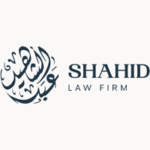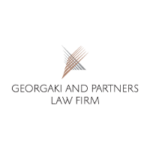-
What are the key rules/laws relevant to M&A and who are the key regulatory authorities?
The primary Thai laws relevant to M&A activities are as follows:
- The Civil and Commercial Code of Thailand, as amended (the “CCC”), governs the principles of corporate law and applies to M&A deals, particularly in cases where the acquirer, seller, or target company is a private company. The regulatory authority overseeing this legislation is the Ministry of Commerce (the “MOC”).
- The Public Limited Company Act B.E. 2535 (1992), as amended (the “PLC Act”), regulates corporate governance for public companies and outlines the required corporate actions to be taken prior to engaging in significant transactions. The regulatory authority overseeing this legislation is also the MOC.
- The Securities and Exchange Act B.E. 2535 (1992), as amended (the “SEC Act”), including its sub-regulations such as disclosure requirements and takeover rules, establishes disclosure requirements, takeover rules, and corporate actions necessary before significant transactions involving listed companies. It also mandates filing and disclosure obligations for share acquisitions of public companies listed on the Stock Exchange of Thailand (the “SET”). The Securities and Exchange Commission (the “SEC”) is the regulatory authority.
- The Foreign Business Act B.E. 2542 (1999), as amended, outlines limitations and restrictions relevant to foreigners conducting business in Thailand. The MOC is the regulatory authority for this legislation as well.
- The Trade Competition Act B.E. 2560 (2017), as amended, serves as the primary framework governing the merger control regime in Thailand. The Trade Competition Commission of Thailand is the regulatory authority overseeing this legislation.
- The Investment Promotion Act B.E. 2520 (1977), as amended, governs investment promotion schemes aimed at encouraging valuable and innovative investments. In certain cases, changes in the shareholders of promoted entities due to an acquisition may trigger notification or approval requirement from the Board of Investment of Thailand, which is the regulatory authority.
In addition, various business sectors are regulated by different authorities, including:
- The National Broadcasting and Telecommunications Commission, which regulates and supervises mergers among companies holding licenses in the telecommunications and broadcasting sectors.
- The Energy Regulatory Commission, which regulates and supervises mergers among companies holding licenses in the energy sector.
- The Bank of Thailand, which regulates and supervises mergers among financial institutions.
- The Office of the Insurance Commission, which regulates and supervises mergers among insurance companies.
-
What is the current state of the market?
Currently, the Thai market is experiencing a slowdown largely driven by a decline in the stock market. As a result, publicly listed companies face increased pressure to optimize their financial positions and sustain growth. In response, many are turning to M&A as a strategic tool for consolidation, restructuring, and long-term stability. Joint ventures, divestments, and asset sales have also become critical measures to manage financial risks and unlock value amid market uncertainty, particularly in the real estate, construction, media, and entertainment sectors.
Despite these challenges, foreign investors continue to drive private M&A activity, particularly in high-growth sectors where regulatory barriers are lower, such as in technology and electric vehicle (EV) supply chains. This trend underscores the resilience of targeted industries and the sustained interest in Thailand’s long-term economic prospects.
While the broader market remains under pressure, ongoing foreign investment and sector-specific strengths suggest that opportunities for strategic M&A remain viable, positioning companies for recovery and future expansion.
-
Which market sectors have been particularly active recently?
In 2024, several key sectors have driven M&A activity in Thailand, with TMT and real estate leading dealmaking alongside energy, education, and the EV supply chain. A notable transaction in the real estate and construction sector was Italian-Thai Development Public Company Limited’s (ITD) divestment of its 46.64% stake in ITD Cementation India Limited, a publicly listed subsidiary, to RENEW EXIM DMCC, one of India’s leading business conglomerates. The deal was valued at approximately USD 351 million.
In the media and entertainment industry, Universal Music Group (UMG) acquired RS Public Company Limited’s (RS) extensive music catalogue in a multi-phase transaction. This included the transfer of RS’s music assets to a joint venture company, followed by tranches of share acquisitions, ultimately granting UMG full control over RS’s iconic catalogue of more than 10,000 songs and related assets. Spanning over four decades (1981–2022), this collection features works by over 960 well-known artists and includes music videos, lyrics, compositions, photographs, and licensed rights, valued at over USD 65 million.
EV-related automotive parts also attracted increased investor interest, highlighting Thailand’s growing role as a regional hub for electric vehicle production and distribution, with BYD (H.K.) Co., Ltd. acquiring a 20% stake in Rever Automotive Co., Ltd., its distributor partner in Thailand. While the deal value was undisclosed, this transaction underscores Thailand’s rising status as a regional EV production hub. The investment aligns with BYD’s expansion strategy in Southeast Asia, particularly as it establishes its first regional manufacturing plant in Thailand.
The education sector also saw continued M&A activity, with a joint venture between Dymon Asia Private Equity and the Ourairat family. This deal involved the entire business transfer of the Satit Bilingual School of Rangsit University and the British International School, Phuket, along with the acquisition of shares in the Satit International Bilingual School of Rangsit University Chiangmai, and SBS International Bangkok. Recognized as one of Thailand’s most prestigious private schools, SBS International Bangkok’s inclusion in the deal underscores growing investor interest in the country’s premium education sector.
These high-profile transactions involving renowned Thai and international investors have generated extensive public attention and required thorough legal analysis due to their complex structures, significant valuations, and cross-border elements. Their successful execution reflects the evolving M&A landscape in Thailand, as investors continue to navigate regulatory frameworks, sector-specific opportunities, and local market dynamics.
-
What do you believe will be the three most significant factors influencing M&A activity over the next 2 years?
Several factors are expected to shape M&A activity in Thailand over the next two years, with technological advancements, geopolitical and regulatory dynamics, and private equity (PE) influences playing a significant role.
1. Technological Advancements
The integration of disruptive technologies, particularly AI and machine learning, is transforming the M&A landscape. Generative AI has become a key driver, enabling rapid data analysis, enhanced due diligence, and more efficient deal sourcing. AI-powered solutions streamline investment decision-making, allowing businesses to identify opportunities with greater speed and accuracy.
As demand for AI-driven tools continues to rise, companies specializing in generative AI software, data processing, and automation technologies are likely to become prime acquisition targets. Businesses seeking to enhance efficiency, optimize operations, and gain a competitive edge will increasingly look to acquire AI-driven assets and intellectual property. Consequently, M&A activity in the technology sector is expected to intensify as companies position themselves for success in an increasingly digital economy.
2. Geopolitical and Regulatory Dynamics
Geopolitical shifts, trade tensions, and heightened regulatory scrutiny will continue to shape cross-border M&A activity. National conflicts, economic sanctions, and shifting trade policies could introduce additional complexities in deal structuring, compliance requirements, and foreign investment approvals. In addition, political transitions and protectionist policies may lead to a more stringent regulatory environment, influencing valuation metrics and investor sentiment.
Within Thailand, evolving regulatory policies-particularly in sectors such as finance, energy, and telecommunications—may impact both inbound and outbound transactions. Due diligence and regulatory risk assessments will play an increasingly critical role in deal execution because of these geopolitical and regulatory uncertainties.
3. Private Equity (PE) Influence and Capital Deployment
Private equity firms remain a dominant force in the Thai M&A market, with significant liquidity available for investment. While short-term volatility, rising interest rates, and valuation mismatches may present challenges, PE firms are expected to focus on strategic acquisitions, including distressed assets and high-growth sectors such as technology, renewable energy, and infrastructure.
Additionally, PE investors are increasingly prioritizing value creation through operational improvements rather than exclusively relying on financial engineering. As competition intensifies, firms with high levels of sectoral expertise and an ability to navigate macroeconomic uncertainties will play a crucial role in shaping M&A trends in Thailand over the next two years.
All of these uncertainties will create both challenges and opportunities in the evolving market landscape, which will make technological innovation, geopolitical and regulatory shifts, and PE-driven investment strategies, the key factors that will significantly influence M&A activity.
-
What are the key means of effecting the acquisition of a publicly traded company?
The primary method of acquiring a listed company is through the acquisition of its shares. Although asset acquisitions, including entire business transfers and partial business transfers, are also common, they tend to be cumbersome. In the case of asset acquisitions by foreigners, it is common for the foreign entity to establish a company to acquire the assets rather than directly carrying out the acquisition itself.
Listed companies may also opt for amalgamation, a consolidation where two or more companies are combined, which results in one new separate company being formed, however, this procedure is rarely used due to its time-consuming nature.
-
What information relating to a target company is publicly available and to what extent is a target company obliged to disclose diligence related information to a potential acquirer?
Private Company
Certain corporate information concerning private companies is publicly accessible. This includes audited financial statements, constitutional corporate documents such as the affidavit, the memorandum and articles of association, including relevant details regarding shareholders, directors, the registered office(s) and the share capital.
Additionally, basic information regarding existing business security and registered intellectual property is also available to the public. Furthermore, most Thai courts provide a database that allows the public to search whether the target company is involved in any litigation proceedings.
There is no regulatory requirement under Thai law for a target company to disclose any specific due diligence information to potential acquirers. Typically, such disclosures are subject to negotiation on a case-by-case basis.
Public Company
Each year, public companies are required to submit financial statements that have been audited by the auditors and approved by the shareholders at the annual general meeting to the MOC within one month from the date approved by the shareholders’ meeting.
For listed companies, in addition to the requirements mentioned above, they are statutorily obligated to disclose the following information, making it accessible to the public:
- quarterly reviewed and annually audited financial statements in both Thai and English;
- annual registration statements containing updated business information of the company in Thai and English; and
- public disclosure upon the occurrence of certain material events in both Thai and English.
Similar to private companies, a target company that is a listed company is not obligated to disclose due diligence-related information to a potential acquirer. More detailed information can be obtained, but this is typically subject to negotiation on a case-by-case basis. Additionally, to secure the best possible offer for the shares, the target company’s board of directors may be willing to provide confidential information to the bidder and any competing bidders, in alignment with the directors’ general obligations under the PLC Act to act in the best interests of the company.
Such disclosures may occur despite the constraints outlined in both the SEC Act and its sub-regulations regarding the disclosure of price-sensitive or ‘insider’ information. However, careful consideration would be given to the following factors when determining what information is to be disclosed:
- whether the information is market-sensitive to the extent that its disclosure may constitute a criminal offense under Thailand’s insider trading laws if the bidder subsequently buys shares or makes an offer based on such information;
- whether the information is commercially sensitive; and
- whether such information would typically only be disclosed on a confidential basis to persons with whom the target is negotiating and who have signed confidentiality undertakings.
-
To what level of detail is due diligence customarily undertaken?
Due diligence in M&A transactions is typically extensive, covering both financial and legal aspects of the target company. The level of scrutiny required depends on various factors, including the nature of the target’s business, industrial sector, operational complexity, and transaction value.
In most cases, a high-level due diligence review is conducted to identify material risks, red-flag issues, and potential deal-breakers that could impact the transaction’s viability. This process commonly includes an examination of the target’s financial statements, corporate structure, material contracts, regulatory compliance, tax obligations, and potential liabilities.
When publicly listed companies are target companies of an acquisition, due diligence follows a similar framework as private M&A transactions but the depth of review may be more limited due to regulations restricting disclosure and practical constraints, such as competitive auction processes with short timelines. The degree of due diligence also depends on the level of control the selling shareholder retains over the company.
In certain large-scale public M&A transactions, buyers or investors may rely primarily on publicly available information, particularly when they are already familiar with the target company and the content of disclosures. While this approach carries some inherent risk, it reflects market practices where deal dynamics, regulatory constraints, and commercial considerations influence the extent of the due diligence undertaken.
-
What are the key decision-making bodies within a target company and what approval rights do shareholders have?
The primary decision-making bodies of a target company are its board of directors and shareholders’ meetings. Below is an overview of the approval procedures for both private and public companies:
Private Company
- For the sale of shares, unless the articles of association of the target company specifically stipulate otherwise, approval resolved at a board of directors meeting or at a shareholders’ meeting is not required.
- For the issuance and sale of new shares, a special resolution passed by the shareholders’ meeting, requiring approval of not less than 75% of the total number of votes from attending shareholders who have the right to vote, is required by law.
- It is important to note that a private company can only issue new shares to its existing shareholders. Therefore, an acquirer must obtain at least one existing share from the existing shareholder in the target company before the company can issue new shares to them.
Public and Listed Company
- Under Section 107 of the PLC Act, the acquisition by a public company of another company’s business (which includes the acquisition of shares in a target company that results in the target company becoming its subsidiary) requires the approval of not less than 75% of the total number of votes from attending shareholders who have the right to vote.
- In addition, for the acquisition by a listed company, if the transaction is of material size relative to the listed company (subject to various tests), shareholders’ approval of not less than 75% of voting rights shall be obtained.
- In the case of an acquisition of primary shares (i.e., newly-issued shares) of a listed company, the issuer will require its shareholders’ approval for the increase of capital (approval of not less than 75% of the total number of votes from attending shareholders who have the right to vote) and the allotment of new shares (by a simple majority vote).
-
What are the duties of the directors and controlling shareholders of a target company?
All companies (whether public or private) are generally governed by their shareholders and managed by their board of directors. The board of directors is obligated to oversee the management and conduct of business operations of public companies in accordance with its objectives, articles of association, and shareholder resolutions.
Private Company
The controlling shareholders of a target company are not bound by specific legal duties in the event of a potential acquisition. However, directors of a company, irrespective of whether there’s a potential acquisition or not, are bound by the general fiduciary duties, including duty of care and loyalty, the obligation to comply with the company’s objectives and articles of association, as well as resolutions from both board of directors’ meetings and shareholders’ meetings, as stipulated under Thai law.
Public and listed Company
According to Thai law, directors of a public company are generally required to provide their opinion on each agenda item that will be presented to the shareholders’ meeting for consideration. Regarding tender offers, the directors of a listed target company must also provide their opinion on the tender offer and appoint an independent financial adviser to provide an opinion. These opinions must be circulated to the shareholders (also see item 25). Directors have a duty of loyalty to the company and shareholders as a whole, but not to individual shareholders.
Further, the listed target company is subject to certain statutory duties in the event of a potential acquisition. From the formal announcement of the tender offer until its completion, there are general restrictions in place with regard to the target company, preventing it from undertaking the following activities unless prior approval is obtained from the specified majority of its shareholders’ meeting (this varies according to the type of transaction), or such undertaking meets specified criteria or necessary consent or waiver from specific parties is obtained:
- offering new shares or convertible securities;
- acquiring or disposing of assets that are of material size, or disposing of assets that are necessary for the operation of the business of the target company;
- incurring debts or entering into, amending, or terminating a material agreement other than in the ordinary course of business of the target company;
- conducting a share buyback (treasury stock) or supporting or influencing its subsidiary or affiliate company in the purchase of its own shares; and
- declaring and paying interim dividends to the shareholders other than in the ordinary course of business.
-
Do employees/other stakeholders have any specific approval, consultation or other rights?
Statutorily, there are no requirements to consult with unions or work councils concerning acquisitions, disposals, or mergers. However, in some cases involving asset acquisition or partial or entire business transfer, employee consent becomes necessary when the transaction involves transferring employees from their existing employer to a new employer. In such circumstances, each employee must provide their explicit consent to the transfer.
Whether the consent of other stakeholders is necessary hinges on the presence of any change of control provision in a contract or permit of the target company. Such provisions may require consent from stakeholders such as lenders, major suppliers, concessionaires, or joint venture partners before the acquisition of a specified number of shares in the target company.
-
To what degree is conditionality an accepted market feature on acquisitions?
In private M&A transactions, conditionality is a common feature between the parties. The Buyer commonly incorporates several conditions precedent that must be satisfied before completion occurs, such as, material adverse change (MAC) clauses, requisite regulatory approvals to ensure all necessary governmental authorizations are secured, and the obtaining of all licenses and permits critical for the operation of the target business. Additionally, merger control clearance has become increasingly significant at the deal structuring stage, as market participants become more accustomed to the legal requirements following the full implementation of the merger control regime in Thailand.
In public M&A transactions, while parties may set conditions for a voluntary tender offer, a mandatory tender offer is typically unconditional. Conditions for launching a voluntary tender offer usually include approval from relevant regulatory authorities, the offeror’s board of directors or shareholders, securing relevant third-party consents, and/or obtaining financing from the bank. Following the full implementation of the merger control regime and the increase in high-profile public M&A transactions in Thailand, merger clearance in voluntary tender offers has received more attention. Provisions related to a material adverse change (MAC) clause may also be included as a condition to the acquisition.
Moreover, under Thai public takeover rules, a tender offer may generally be withdrawn if:
- there is severe damage to the status or assets of the target company during the tender offer period, not caused by the offeror; or
- there is a material decrease in securities value during the tender offer period due to any frustrating action taken by the target company—the cancellation of the tender offer can be made if those conditions are stated in the tender offer documents and no objection is raised by the SEC.
-
What steps can an acquirer of a target company take to secure deal exclusivity?
An acquirer can secure a deal exclusivity through a memorandum of understanding or letter of intent, which typically includes an exclusivity period. This exclusivity provision is generally provided by either the major selling shareholder (in the case of a share acquisition transaction) or the target company (in case where the transaction involves issuing new shares). The exclusivity arrangement effectively prevents the seller from pursuing competing offers during a specified timeframe, allowing the acquirer to conduct due diligence or negotiate transaction terms without competitive interference.
-
What other deal protection and costs coverage mechanisms are most frequently used by acquirers?
Break fees are not commonly utilized in M&A transactions in Thailand. Instead, exclusivity undertakings are typically employed to protect the interests of offerors. However, in instances where break fees are utilized, Thai courts may view break fees as damages and use their discretion to award damages based on actual loss, allowing the quantum of the break fee to be adjusted.
-
Which forms of consideration are most commonly used?
In M&A transactions in Thailand, the forms of consideration are typically determined by the structure of the transaction and any commercially agreed terms involved. Cash is the commonly used form of consideration, although share swaps may also be used, depending on the configuration of the transaction.
-
At what ownership levels by an acquirer is public disclosure required (whether acquiring a target company as a whole or a minority stake)?
There is no statutory obligation requiring private companies or public companies to publicly disclose information when acquiring a target company.
However, the acquisition of shares at every 5% threshold of the voting rights in a listed company must be publicly disclosed. The acquirer is required to submit an acquisition form (Report of the Acquisition or Disposition of Securities (Form 246-2)) to notify the public via the SEC online system. This excludes certain types of acquisitions, such as rights offerings, securities borrowing and lending, and Non-Voting Depository Receipt, etc.
An acquisition of shares that reaches or exceeds 25%, 50%, or 75% of the voting rights in a listed company triggers tender offer obligations and the disclosure of relevant information to the public via both the SEC online system and the portal of the SET.
-
At what stage of negotiation is public disclosure required or customary?
For private companies, public disclosure is not required.
For listed companies, in cases where a target company has been contacted by an offeror, the SET requires the board of directors of such company, notwithstanding whether an agreement has been reached on making a tender offer, to strictly keep information that has not been disclosed to the public confidential. This is to ensure that persons involved in negotiations, representatives, intermediaries, or financial advisors perform their duties responsibly and maintain confidentiality. The SET must be immediately informed if there is any suspicion of unauthorized disclosure of negotiation information that has not yet been officially announced. If any information related to the takeover is leaked, the target company is required to immediately disclose such information to the SET.
When the acquisition involves a minority stake or a secondary share sale, public disclosure by the target company is required if there is a direct or indirect change of its major shareholders (defined as a shareholder holding more than 10% of the paid-up capital of the listed company) which results in a change of control in the target company. This is normally done upon completion of the acquisition.
In addition, when an acquirer conducts transactions that result in the ownership reaching or surpassing 5% or a multiple of 5% of the target company’s shares (including complicated rules for convertible securities or warrants), the acquirer is required to report the transaction to the SEC. This includes:
- direct acquisition or disposal of shares or convertible securities of the target company;
- becoming or ceasing to be a related person; or
- becoming or ceasing to be a concert party.
-
Is there any maximum time period for negotiations or due diligence?
There are no specific requirements under Thai law regarding the time for negotiations or due diligence. However, in practice, the typical duration for conducting due diligence is approximately one to two months. As for negotiations, the time frame may vary depending on the complexity of the transactions and the number of parties involved.
-
Is there any maximum time period between announcement of a transaction and completion of a transaction?
For private companies, a public announcement of a transaction is not required and there is no maximum time period between a voluntary announcement or disclosure of a transaction and completion of a transaction.
Similarly, for public companies, a public announcement is not required and no specific timeframe is imposed for completing a transaction once it has been approved. For listed companies, there is currently no maximum time period between the announcement and completion of a transaction. However, listed companies are required to publicly and promptly disclose significant information essential for the decision-making of investors when the listed companies enter into a transaction (in this case, when their board of directors resolves to approve the entering to the transaction), while the announcement of completion of the transaction is optional.
-
Are there any circumstances where a minimum price may be set for the shares in a target company?
If the target company is a private company or a public company, there is no minimum price requirement.
If the target company is a listed company, there is no minimum price requirement except in the following cases:
- In the case that the acquirer acquires shares in the target company resulting in its shareholding reaching or exceeding 25%, 50%, or 75% of the voting rights in the target company, the acquirer is required to make a tender offer for all securities of the target company. In such a case, the tender offer price must not be lower than the highest price paid by the acquirer or any of its related persons, concert parties, or related persons of the concert parties of the acquirer for the shares of the target company during the period of 90 days prior to the date on which the tender offer documents are submitted to the SEC.
- In the case of a delisting tender offer, the offer price must not be less than the highest price calculated on the following bases:
- the highest price paid for the shares that have been acquired by the acquirer or any of its related persons during the period of 90 days prior to the date on which the tender offer documents are submitted to the SEC;
- the weighted average market price of the shares during the period of 5 business days prior to the date on which the board of directors of the target company passes a resolution to propose the shareholders’ meeting to consider delisting the shares from the SET, or the date on which the shareholders’ meeting passes a resolution to delist the shares from the SET, whichever is earlier;
- the net asset value of the target company calculated based on the book value which has been adjusted to reflect the latest market value of the assets and liabilities of the target company; and
- the fair value of ordinary or preference shares of the target company as appraised by an independent financial advisor.
-
Is it possible for target companies to provide financial assistance?
There are generally no restrictions on financial assistance except in the case of a listed target company where the financial assistance constitutes a connected party transaction due to the fact that it is a transaction between the target company and its related persons.
In such cases, approval by shareholders of not less than 75% of the total number of votes from attending shareholders who have the right to vote is required if the amount of the financial assistance equals or exceeds 3% of the net tangible asset value of the target company.
-
Which governing law is customarily used on acquisitions?
Thai law continues to remain the preferred governing law for domestic M&A transactions. However, in cross-border M&A transactions, it is common practice to adopt foreign governing laws in the sale and purchase agreements, particularly in share sale and purchase agreements. Thai courts typically recognize and enforce the contractual choice of foreign law, particularly when one of the parties is a foreign entity or individual. This is subject to the general reservation that it is not contrary to public order or the good morals of the people of Thailand, and the foreign law must be proven to the Thai courts as appropriate. Recognition of the foreign governing law may be easily achieved if a sale and purchase agreement governed by foreign law is enforced outside Thailand, such as through foreign arbitration or a foreign court. Thailand is a signatory to the New York Convention.
-
What public-facing documentation must a buyer produce in connection with the acquisition of a listed company?
The key public-facing documentation that a buyer must produce in connection with the acquisition of a listed company comprises the following:
- Report of the Acquisition or Disposition of Securities (Form 246-2);
- Takeover Statement (Form 247-3);
- Tender Offer for Securities (Form 247-4);
- Form for Revising/Adding Information in a Tender Offer Statement (for amendment to the duration of the tender offer period and proposal of tender offer) (Form 247-6 Kor); and
- Report on the Result of the Tender Offer for Securities (Form 256-2).
-
What formalities are required in order to document a transfer of shares, including any local transfer taxes or duties?
Private Company
As stipulated under the CCC, the transferor and transferee are obligated to execute a share transfer instrument, which must be certified by at least one witness for each transferor and transferee.
Additionally, stamp duty payment is required on the share transfer instrument if brought into Thailand. Under the Revenue Code of Thailand, calculated at the rate of 0.1% of the greater of the sale price or the paid-up value of the shares being transferred. While the legal obligation to pay this duty falls on the seller of the shares, the parties may contractually agree to allocate this responsibility differently.
Public and Listed Company
For the transfer of shares with a physical share certificate (scrip), a transfer of shares becomes valid upon the endorsement of the original share certificate by both the transferor and transferee, with an indication of the name of the transferee, and upon the delivery of the share certificate to the transferee. The transfer of shares becomes effective against third parties after the company registers the said transfer in its share register.
For the transfer of securities in a scripless system, a securities holder wishing to transfer securities deposited with a depository participant can do so by contacting the participant directly.
According to the Revenue Code of Thailand, stamp duty for the transfer of listed securities, for which Thailand Securities Depository Co., Ltd. is the registrar, and capital gains taxes resulting from trading by natural person investors on the SET are exempted.
-
Are hostile acquisitions a common feature?
Hostile acquisitions are rare in Thailand, with only a few cases occurring in the past decade. Thai law does not distinguish between procedures for recommended and hostile offers.
-
What protections do directors of a target company have against a hostile approach?
Directors are not specifically protected in the event of a hostile takeover. In fact, directors of a public company are restricted from undertaking certain activities during a takeover, as outlined above in item 9.
Nonetheless, directors are required to offer their opinions on each tender offer document from acquirers and must also procure the opinion of an independent financial adviser on these documents.
-
Are there circumstances where a buyer may have to make a mandatory or compulsory offer for a target company?
If the target company is a private company, a compulsory offer for a target company is generally not required by Thai law. Such obligations arise if they are stipulated in the shareholders’ agreement governing such target company.
If the target company is a listed company, in the case where the shareholding reaches or exceeds 25%, 50%, or 75% of the voting rights in the target company, the acquirer is required to make a tender offer for all securities of the target company.
-
If an acquirer does not obtain full control of a target company, what rights do minority shareholders enjoy?
Private Company
Minority shareholders in private companies generally receive limited statutory protections. However, several customary protections exist, including:
- Right to Vote on Special Resolutions: Special resolutions require at least 75% approval from attending shareholders with voting rights and cover material corporate matters, such as capital reductions or increases and amendments to constitutional documents.
- Right to Call Shareholders’ Meetings: Shareholders holding at least 20% of the company’s total shares may request a shareholders’ meeting be convened.
- Preemptive Rights: Minority shareholders have the right to subscribe pro rata to newly issued shares, preventing dilution of their ownership.
- Right to Inspect Corporate Records: Minority shareholders are entitled to review the company’s books and records, ensuring transparency and accountability.
- Right to Initiate Legal Action Against Directors: If directors cause damage to the company and the company itself fails to take action, minority shareholders may initiate legal proceedings to hold them accountable.
Further protection can be granted if explicitly stated in the company’s articles of association.
Public and Listed Company
The statutory rights of shareholders depend on their level of shareholding, as outlined below:
- Minority shareholders holding less than 25% ownership
- Public Company
- Right to Request a Shareholders’ Meeting: Shareholders holding at least 10% of total shares may request that the board of directors convene a shareholders’ meeting.
- Right to Initiate Legal Proceedings Against Directors: Shareholders holding at least 5% of total shares may take legal action against directors for breach of fiduciary duties and violations of the articles of association, shareholders’ resolutions, or applicable laws.
- Right to Challenge Shareholders’ Resolutions: Shareholders holding at least 20% of total shares may file for the cancellation of resolutions adopted at shareholders’ meetings if they violate the articles of association or applicable laws.
- Right to Inspect Business Operations: Shareholders holding at least 5% of total shares may submit an application to the MOC to request an inspection of the company’s business operations, financial standing, and board conduct.
- Right to Access Financial Statements: Any shareholder may inspect the company’s balance sheet, profit and loss account, and auditor’s report during office hours and request that the company send a certified copies of such documents.
- Listed Company
- Minority shareholders in a listed company have additional rights beyond those in a public company, including:
- Right to Block the Issuance of Shares Below Market Price: Shareholders holding at least 10% of total shares may block the issuance of shares through private placement if the offer-price is below the current market price.
- Right to Block Delisting Resolutions: Shareholders holding at least 10% of total shares may block resolutions delisting the company from the stock exchange.
- Right to Block the Issuance of Securities to Directors and Employees (ESOP): Shareholders holding at least 5% or 10%, as applicable, may block the issuance and sale of securities to directors and employees under an ESOP.
- Public Company
- Minority shareholders with more than 25% but below 50% ownership
- Public Company
- Minority shareholders holding more than 25% of a public company’s voting rights can veto transactions requiring at least 75% shareholder approval, including:
- increasing or decreasing the registered capital;
- selling or transferring all or significant parts of the business to others;
- purchasing or accepting the transfer of the business of others;
- terminating contracts related to the lease of all or significant parts of the business, transferring management, or consolidating the business with others for profit and loss sharing;
- amending the memorandum of association or articles of association;
- issuing debentures;
- amalgamating with another company or entity; and
- dissolving the company.
- Listed Company
- In addition to the above requirements for public companies, shareholders of a listed company holding more than 25% can veto specific matters, including:
- “whitewash” approval (used to waive mandatory tender offer requirements); and
- class transactions; and
- connected party transactions.
-
Is a mechanism available to compulsorily acquire minority stakes?
No, Thailand does not have a legal mechanism for the compulsory acquisition (squeeze-out) of minority stakes.
Thailand: Mergers & Acquisitions
This country-specific Q&A provides an overview of Mergers & Acquisitions laws and regulations applicable in Thailand.
-
What are the key rules/laws relevant to M&A and who are the key regulatory authorities?
-
What is the current state of the market?
-
Which market sectors have been particularly active recently?
-
What do you believe will be the three most significant factors influencing M&A activity over the next 2 years?
-
What are the key means of effecting the acquisition of a publicly traded company?
-
What information relating to a target company is publicly available and to what extent is a target company obliged to disclose diligence related information to a potential acquirer?
-
To what level of detail is due diligence customarily undertaken?
-
What are the key decision-making bodies within a target company and what approval rights do shareholders have?
-
What are the duties of the directors and controlling shareholders of a target company?
-
Do employees/other stakeholders have any specific approval, consultation or other rights?
-
To what degree is conditionality an accepted market feature on acquisitions?
-
What steps can an acquirer of a target company take to secure deal exclusivity?
-
What other deal protection and costs coverage mechanisms are most frequently used by acquirers?
-
Which forms of consideration are most commonly used?
-
At what ownership levels by an acquirer is public disclosure required (whether acquiring a target company as a whole or a minority stake)?
-
At what stage of negotiation is public disclosure required or customary?
-
Is there any maximum time period for negotiations or due diligence?
-
Is there any maximum time period between announcement of a transaction and completion of a transaction?
-
Are there any circumstances where a minimum price may be set for the shares in a target company?
-
Is it possible for target companies to provide financial assistance?
-
Which governing law is customarily used on acquisitions?
-
What public-facing documentation must a buyer produce in connection with the acquisition of a listed company?
-
What formalities are required in order to document a transfer of shares, including any local transfer taxes or duties?
-
Are hostile acquisitions a common feature?
-
What protections do directors of a target company have against a hostile approach?
-
Are there circumstances where a buyer may have to make a mandatory or compulsory offer for a target company?
-
If an acquirer does not obtain full control of a target company, what rights do minority shareholders enjoy?
-
Is a mechanism available to compulsorily acquire minority stakes?





























